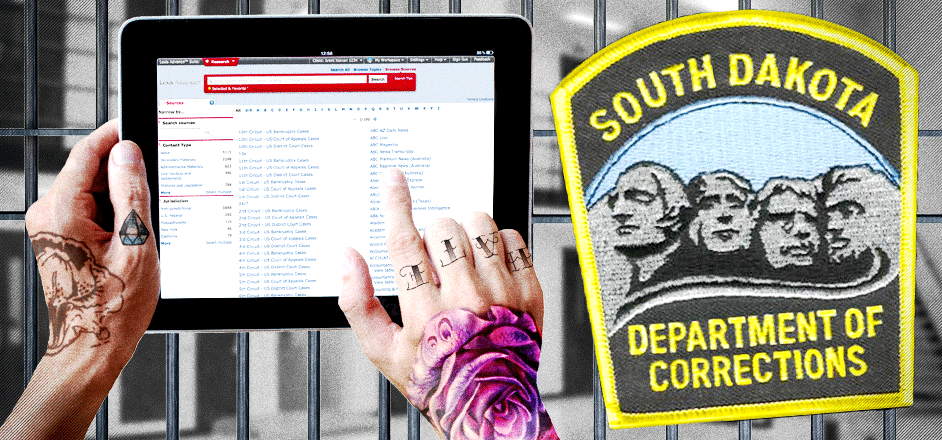When laws get you locked in a cage, they at least offer one consolation — access to a lawyer.
However, now inmates in South Dakota won’t even get that. Starting this week, the state’s prisons are replacing on-site lawyers with iPads. The computer tablets will be equipped with a LexisNexis subscription, a legal search engine.
Unsurprisingly, legal experts say this is a terrible decision — akin to replacing a hospital’s medical staff with medical manuals.
South Dakota law requires prisons to provide inmates with access to the courts system. But as long as prisoners can research court cases using LexisNexis, the state has upheld the law, the Department of Corrections claims.
LexisNexis is an electronic database usually used by lawyers and governments. It’s filled with thousands upon thousands of federal and state cases, laws and statutes. For an untrained amateur, it’s pretty difficult to navigate.
Jason Adams, a South Dakota lawyer who has represented prisoners challenging their convictions, explained to local paper The Argus Leader, “For some of the lower functioning inmates or less well-educated inmates, it’s a lot like to giving a book to someone who can’t read. Giving you access to LexisNexis doesn’t teach you how to do legal research.”
But the Department of Corrections insists that eliminating lawyers is necessary to cut costs. The cost-effective contract the DOC agreed to, unfortunately, involves a company with a history of exploiting inmates.
The DOC's deal was made with prison phone company Global Tel*Link, which offered to provide South Dakota prisons with tablet computers at no cost to the state. However, GTL can still expect to earn a pretty penny from the deal.
In Colorado, where the company made a similar deal for free tablets, inmates pay subscription fees of $4 per month for ebooks, $6 per month for video games (like Solitaire), and $20 per month for music. They pay rates starting at 49 cents for every single text message sent to and received from family members. Their rates for phone calls are as high as $1.22 per minute. Making a payment results in a $6.95 service charge.
GTL has faced countless accusations of taking advantage of inmates. But the company has a near-monopoly, controlling 50 percent of the prison phone market. GTL doesn’t have to compete with other companies to keep its rates low.
The Federal Communications Commission recently intervened to restrict GTL’s phone call pricing, after finding charges of $17 or more for 15-minute calls. The FCC deemed that inmates’ phone bills were “unreasonably high.” Last month, the company paid a $2.5 million settlement for fraudulent business dealings.
Yet the exploitative company keeps growing. The state of South Dakota has handed millions of dollars to GTL on a silver platter, allowing it to profit off of people in vulnerable situations.
Inmates who depend upon the helping hand of real-life experts might be out of luck, but at least they can depend on their iPad.
“Hey Siri,” they'll ask, “how do I get out of this?”




Leave a Reply